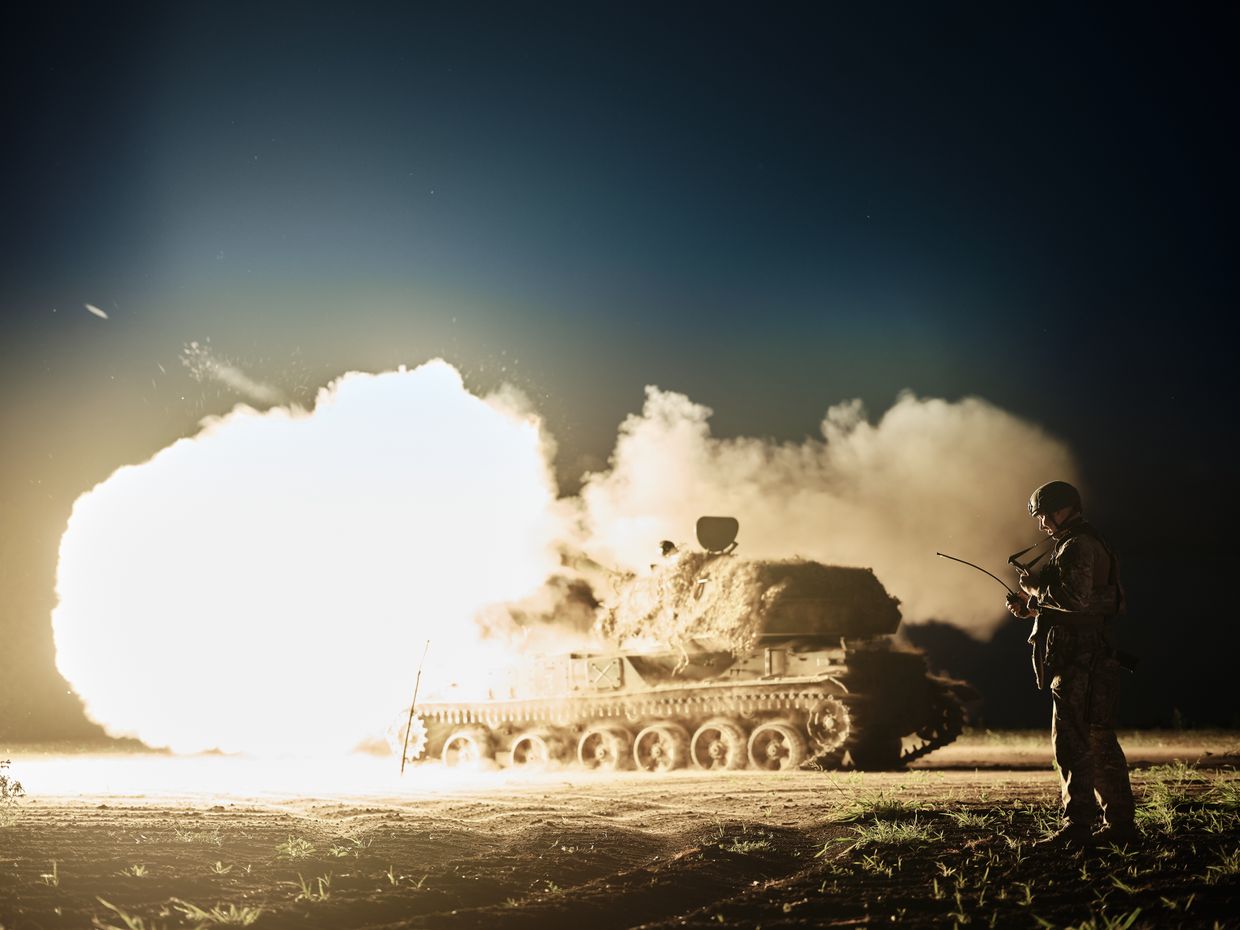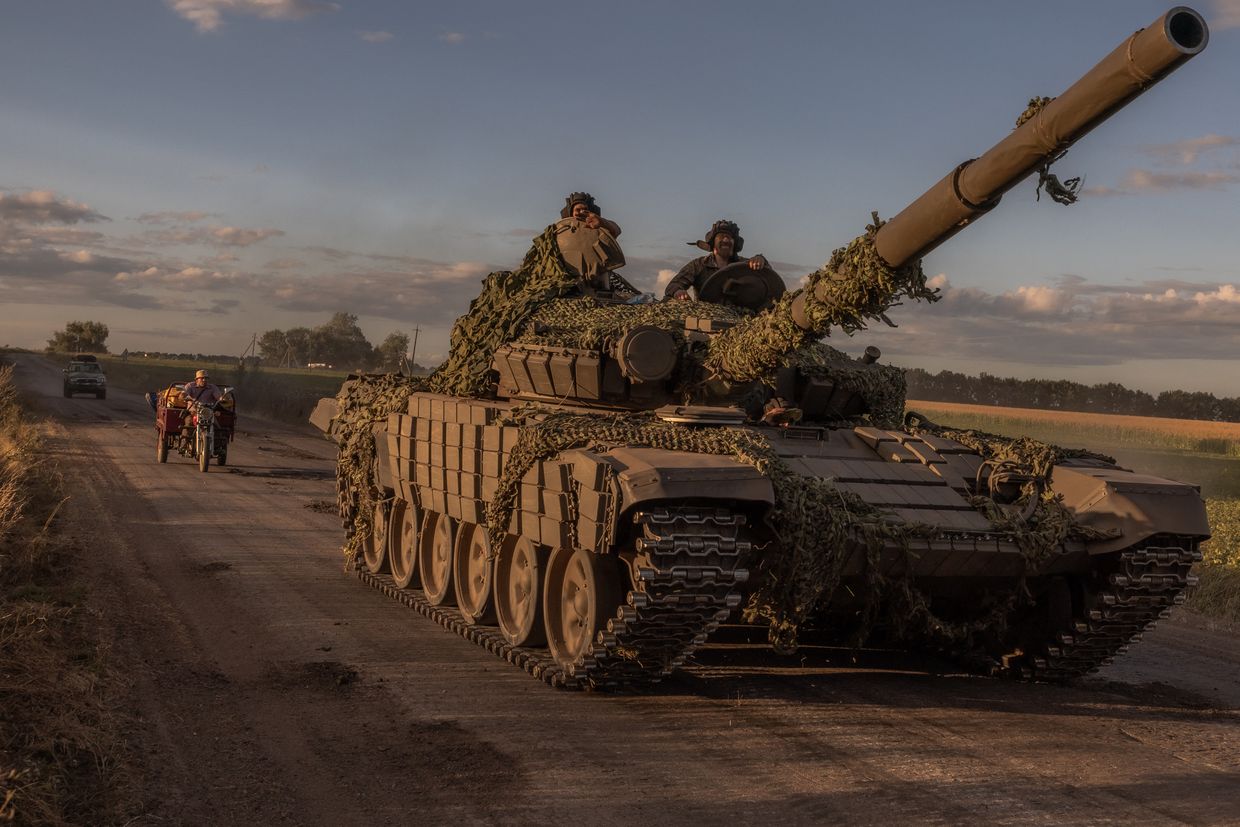US-Ukraine discussions about long-range cruise missiles 'in advanced stages,' source says.
Support independent journalism in Ukraine. Join us in this fight.
Become a member Support us just onceDiscussions between Ukraine and U.S. President Joe Biden's administration about supplies of long-range cruise missiles are "in the advanced stages," a source close to President Volodymyr Zelensky's administration told the Kyiv Independent. The timeline of when the missiles could arrive in Ukraine is unclear, the source said, adding that sometime this fall is in consideration.
Earlier on Aug.
15, Politico reported, citing undisclosed sources, that Biden's administration is "open" to supplying Kyiv with long-range cruise missiles to bolster the recently provided F-16 fighter jets, among other purposes. Kyiv has been urging the U.S. to provide its long-range missiles for Ukrainian forces to be able to strike at Russian military infrastructure and logistics deep inside Russia since the beginning of the full-scale invasion. The news comes as Ukraine continues its Kursk incursion into Russian territory, which has been deemed a tactical success.
Ukraine claimed to control 82 Russian settlements as of Aug.
15. Groups of Ukrainian soldiers have also reportedly entered neighboring Belgorod Oblast as Russian authorities scramble to evacuate its population and send in reinforcements. The U.S. has not yet made a decision about the missile deliveries but is working out the "complicated details," Politico said, citing one Biden administration official.
Those "details" include reviews of the transfer of sensitive technologies and ensuring Ukraine's jets can launch the 2,400-pound (around 1,089 kilograms) missile that carries a 1,000-pound (around 454 kilograms) warhead, according to the media outlet. The Pentagon declined to comment on Politico's request about the possible shipment of missiles but said that it is considering "a range of options to meet Ukraine's security assistance requirements."
Kursk incursion and Crimea strikes could ease pressure on Ukraine's Donbas forces Ukraine's surprise incursion into Russia's Kursk Oblast over the past week is lifting some hopes for Ukrainian soldiers losing ground on the eastern front amid worsening manpower and ammunition shortages.
Ukraine launched its stunning counterattack in the northeast into Russian territory 10 months...

According to Politico, the U.S. is considering providing Ukraine with JASSM missiles, which can be launched over 200 miles (nearly 322 kilometers) from fourth-generation F-16s. If delivered to Ukraine, JASSMs, developed by Lockheed Martin, would be the last missiles the U.S. has ever banned from being supplied to Kyiv. JASSM missiles can significantly boost the combat capabilities of F-16s, as in that case they are not expected to fly close to the border with Russia because of the risk of being shot down.
An administration official warned that there is "plenty of work to be done" before any missiles arrive in Ukraine, including making sure that Kyiv's existing Soviet-era aircraft and recently delivered F-16s can launch a missile at targets more than 230 miles (nearly 370 kilometers) away, Politico said. Two undisclosed sources told Politico that the Pentagon is already working with Ukraine on these technical issues. Ukraine has air- and ground-launched missiles provided by the U.S., U.K., and France that can reach almost 200 miles from the launch point, but restrictions on the use of missiles against Russian territory remain in place.
The U.S. gave Ukraine permission on June 1 to use some American-supplied weapons, including HIMARS rockets, to strike targets in Russia located near the border with Kharkiv Oblast after Russia launched a renewed offensive in the region on May 10. Ukraine is still prohibited from using ATACMS and other long-range U.S.-supplied weapons for strikes deeper inside Russia. The United States will decide on the use of American-made weapons provided to Ukraine, including F-16 fighters, for strikes in Russia depending on the situation on the battlefield and the needs of the Ukrainian Armed Forces, according to the U.S.
State Department. Kyiv has repeatedly called on its partners to allow attacks on Russian military and industrial facilities to prevent Russia from fueling its aggression in Ukraine. Heorhii Tykhyi, a Foreign Ministry spokesperson, said on Aug.
13 that the Ukrainian incursion into Kursk Oblast would be "less necessary" if Kyiv were allowed to "fully utilize (its) long-range capabilities" against Russia.
As Ukraine's Kursk incursion wins US support, will fears of Russian escalation fade? Russia has a "real dilemma," U.S. President Joe Biden said on Aug.
13, seven days after Ukrainian forces launched a surprise cross-border incursion into Kursk Oblast.
On the defensive side of the full-scale war for the first time, Moscow is in an unexpected bind. "It's creating a real dilemma
